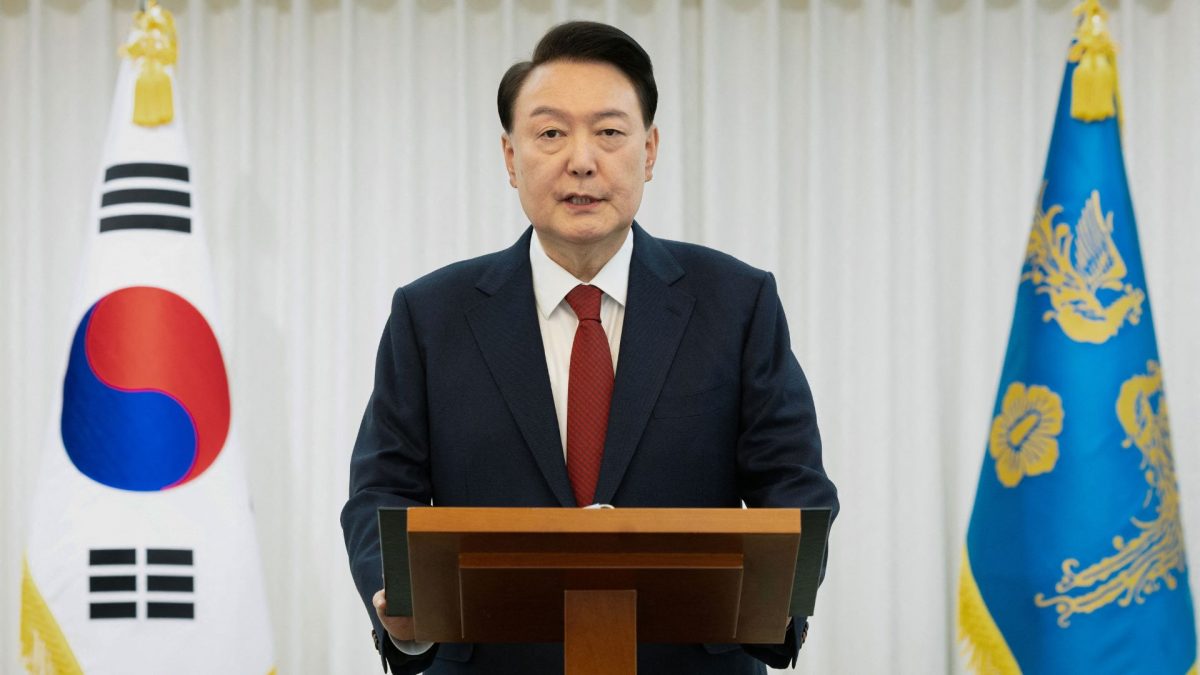History has been made in South Korea – and not in a good way.
President Yoon Suk Yeol has become South Korea’s first leader to be indicted.
Yoon, who briefly imposed martial law last month, is now facing dire consequences – the death penalty or life in prison.
Meanwhile, the Constitutional Court is set to hear Yoon’s case.
But what next for Yoon? Can he still be reinstated as president?
What next for Yoon?
Jail – for now.
Yoon will be taken from a detention facility to a Seoul court for hearings in the rebellion trial.
The entire case will likely take six months.
Prosecutors accuse Yoon of orchestrating a rebellion with his martial law imposition.
Though presidential immunity protects Yoon from most criminal prosecutions, it does not on charges of rebellion or treason.
Yoon’s defense minister, police chief and several other military commanders have already been arrested and indicted on alleged rebellion, abuse of power and other charges related to the martial law decree.
Meanwhile, rival protests look likely to continue in downtown Seoul.
After a local court on January 19 approved a formal arrest warrant to extend Yoon’s detention, dozens of his supporters stormed the court building, destroying windows, doors and other property.
They also attacked police officers with bricks, steel pipes and other objects. The violence left 17 police officers injured, and police detained 46 protesters.
What about the Constitutional Court?
Also hanging over Yoon’s head is the hearing in the Constitutional Court.
The court has to decide whether to uphold Yoon’s impeachment by the National Assembly or reject it.
Observers say a ruling will occur before the deadline.
In the cases of two past impeached presidents, Roh Moo-hyun in 2004 and Park Geun-hye in 2016, the court spent 63 days and 91 days respectively before determining to reinstate Roh and dismiss Park.
If the Constitutional Court removes Yoon from office, an election to choose his successor must be held within two months.
Recent public surveys show that governing and opposition party candidates are running neck-and-neck in a possible presidential by-election race.
What about the political parties in South Korea?
Both say this is just the beginning.
Shin Dong-wook, a spokesperson for the governing conservative People Power Party, is warning that prosecutors will face unspecified legal and political consequences for their “wrong indictment” of Yoon.
Yoon’s defense team says the prosecutors who indicted the president are trying to curry favour with political forces who want Yoon gone. They called the indictment “a shame in the history of South Korean prosecutors.”
The main opposition liberal Democratic Party, which led Yoon’s December 14 impeachment, called his indictment and arrest “the beginning of the punishment of the ringleader of a rebellion.”
Party spokesperson Han Min-soo warned Yoon to stop what he called his attempt to incite far-right supporters based on “groundless delusion.”
Yoon has steadfastly denied any wrongdoing and says his declaration of martial law was a legitimate act of governance meant to raise public awareness of the danger of the liberal-controlled National Assembly, which obstructed his agenda.
After declaring martial law on December 3, Yoon sent troops and police officers to the assembly, but enough lawmakers still managed to enter an assembly chamber to unanimously vote down Yoon’s decree, forcing his Cabinet to lift it.
The martial law imposition, the first of its kind in South Korea in more than four decades, lasted only six hours.
But it evoked painful memories of the military-backed rulers who used martial law and emergency decrees to suppress opponents in the 1960s through the 1980s.
)